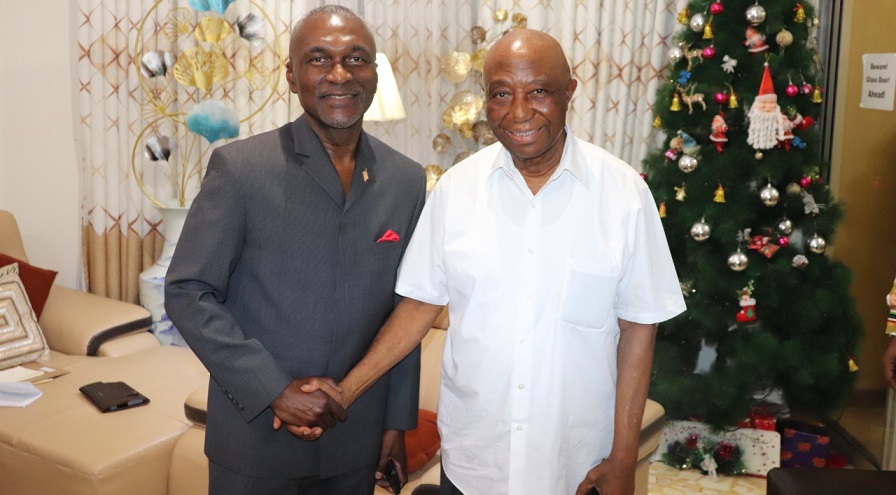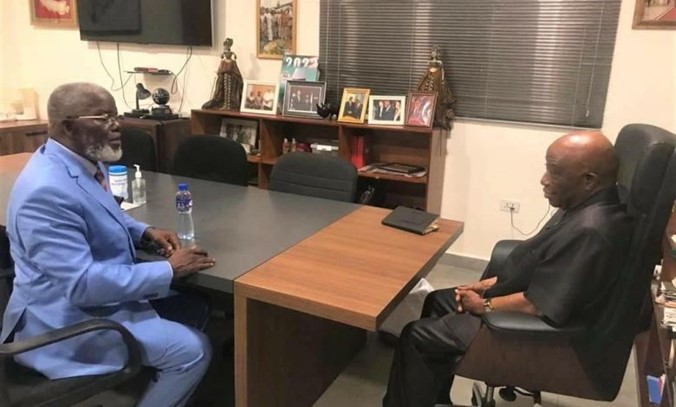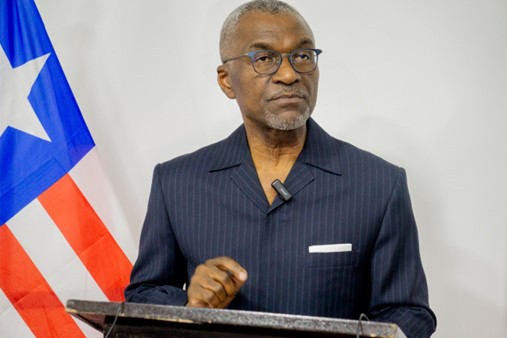
The Elections Coordinating Committee (ECC) has alarmed over what it considers the sale of democracy in the country.
The ECC observed that since the commencement of the voter roll update the process has been characterized by “commercialization of our democracy through voters trucking and financial inducements”.
Addressing a news conference in Monrovia on Friday, September 18, 2020, the election observation group said they see the commercialization of the electoral system as a breach of the New Elections Law of Liberia.
This, the ECC said, has created the environment for the occurrence of electoral violence, notably in Grand Cape Mount and Bomi counties, and has heightened unnecessary political tension in the country.
Oscar Bloh, the Chairman of the Elections Coordination Committee, however confirmed that the VRU has commenced across the entire country but the process did not start simultaneously on September 11, 2020 in all of the 73 electoral districts of Maryland, Sinoe, Grand Kru, Rivergee, districts #6 and #9 in Nimba and district #5, Montserrado County.
According to Bloh, ECC observers have reported the trucking of voters from Montserrado into Bomi, particularly district #1. One case in point was in district #1, at the CH Dwey High School, with center code #03071, and Klay Town Hall, with center code #03043, electoral district #2. Another incident was reported from Bomi County, district #1, at Moses Vincent Compound, code #03075, where violence, harassment and intimidation disrupted the VRU exercise.
“The ECC condemns the trucking of voters, and wishes to inform the public that such act contravenes Section 10.1a of the New Elections Law, which prohibits the trucking of voters, and the practice constitutes an electoral offense and is punishable by a fine or imprisonment for not more than six (6) months or both.

“The ECC further notes that the trucking of voters, which goes with financial benefit and other forms of financial inducements to mobilize support, is a calculated attempt by politicians to unduly influence the outcome of the results of the December 8, 2020 election. These practices amount to the commercialization of Liberia’s fragile democracy and undermine the principles of electoral integrity, credibility, and legitimate representation of citizens at the National Legislature,” ECC said in a press release.
At Grand Cape Mount County’s district #2, the ECC reported an incident at the Sinje Public School, code #12029, where the entire voter roll update was ordered closed by 2:00 p.m. by the NEC’s magistrate, who instructed the VRU team to relocate to Robertsport because they had the wrong movement plan. This resulted in the sending home of the remaining registrants on the line, who had either come to update their information or get registered.
“The ECC further observes that most registration centers lacked uniformed security personnel, and about 50% of the total of 115 reports received showed that political parties deployed agents to observe the voter roll update exercise.
“For the total number of 115 centers observed during this phase of the observation, 83 centers had hand washing buckets for registrants and staff to use and 53 centers had hand sanitizers. Additionally, the NEC’s officials in 80 of 115 centers were wearing face masks, and in the remaining centers they did not wear the face masks during the conduct of the process. For social distancing, only in 64 centers registrants and officials practiced social distancing, while in 35 centers there was no social distancing.
“The ECC recommends that, to help enhance the quality of the registration exercise and to build citizens’ trust in the electoral process, it calls on the government to close the border with Sierra Leone for the next phase of the VRU, a broad-based stakeholders’ consultation with political parties, CSOs, media, religious institutions, and prominent citizens to reduce the escalating tension in the country.
“The ECC is also asking the NEC to conduct an immediate investigation of voter trucking and prosecute the doers in keeping with due process of law while political parties demonstrate political tolerance backed by public commitment to remain civil, reduce the use of inflammatory statements and refrain from violence and intimidation.”






